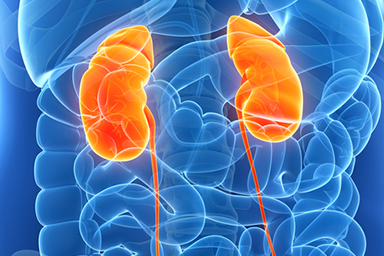What is Acute Pyelonephritis?
It is a sudden and severe kidney infection. It causes the kidneys to swell and may permanently damage them. Pyelonephritis can be life-threatening.
What are the symptoms?
Symptoms usually appear within two days of infection. Common symptoms include:
- a fever greater than 102°F (38.9°C)
- pain in the abdomen, back, side, or groin
- painful urination
- cloudy urine
- blood or pus in the urine
- urgency
- fishy-smelling urine
Other symptoms can include:
- shaking or chills
- nausea
- vomiting
- general aching or ill feeling
- fatigue
- moist skin
- mental confusion
Symptoms may be different in children and older adults than they are in other people. For example, mental confusion is common in older adults and is often their only symptom.
People with chronic pyelonephritis may experience only mild symptoms or may even lack noticeable symptoms altogether.
What are the causes?
The infection usually starts in the lower urinary tract as a urinary tract infection. Bacteria enter the body through the urethra and begin to multiply and spread up to the bladder. From there, the bacteria travel through the ureters to the kidneys.
Bacteria such as E. coli often cause the infection. However, any serious infection in the bloodstream can also spread to the kidneys and cause acute pyelonephritis.
Are there risk factors?
Any problem that interrupts the normal flow of urine causes a greater risk of acute pyelonephritis. e.g a urinary tract that is an unusual size or shape is more likely to lead to acute pyelonephritis.
The urethras in women are much shorter than in men so anatomically it is easier for bacteria to enter their bodies making women more prone to kidney infections and at a higher risk of acute pyelonephritis.
Other people who are at increased risk include:
- anyone with chronic kidney stones or other kidney or bladder conditions
- older adults
- people with suppressed immune systems, such as people with diabetes or cancer
- people with vesicoureteral reflux (a condition where small amounts of urine back up from the bladder into the ureters and kidneys)
- people with an enlarged prostate gland
Other factors that can make you more vulnerable to infection such as :
- catheter use
- after cystoscopy
- urinary tract surgery
- certain medications
- nerve or spinal cord damage
.
Diagnosing pyelonephritis
Urine tests
A doctor will check for fever, tenderness in the abdomen, and other common symptoms. If they suspect a kidney infection, they will order a urine test. This helps them check for bacteria, concentration, blood, and pus in the urine.
Imaging tests
The doctor may also order an ultrasound to look for cysts, tumours, or other obstructions in the urinary tract.
Anyone who does not respond to treatment within 72 hours will probably be sent for a CT scan which will detect for obstructions within the urinary tract.
Radioactive imaging
A dimercaptosuccinic acid (DMSA) test may be ordered if your doctor suspects scarring as a result of pyelonephritis. This is an imaging technique that tracks an injection of radioactive material.
A healthcare professional injects the material through a vein in the arm. The material then travels to the kidneys. Images taken as the radioactive material passes through the kidneys show infected or scarred areas.

Treatment
Antibiotics
Antibiotics are the first course of action against acute pyelonephritis. The antibiotic of choice will be decided if they can identify the specific bacteria, otherwise a broad-spectrum antibiotic is used.
Although drugs can cure the infection within 2 to 3 days, the medication must be taken for the entire prescription period (usually 10 to 14 days).
Hospital admission
In some cases, drug therapy is ineffective. For a severe kidney infection, your doctor may admit you to the hospital. The length of your stay depends on the severity of your condition and how well you respond to treatment.
Treatment may include IV drip and antibiotics for 24 to 48 hours. While you are in the hospital, doctors will monitor your blood and urine to track the infection. When you leave you will stay on oral antibiotics for a further 10 days or more.
Surgery
Recurrent kidney infections may result from an underlying medical problem. In those cases, surgery may be required to remove any obstructions or to correct any structural problems in the kidneys.
In cases of severe infection, a nephrectomy may be needed where part of the kidney is removed.
Potential complications
A possible complication of acute pyelonephritis is that it becomes a chronic kidney disease. If the infection continues, the kidneys may be permanently damaged. And is also possible for the infection to enter the bloodstream and cause sepsis or a generalised infection.
Other complications include:
- recurring kidney infections
- the infection spreading to areas around the kidneys
- acute kidney failure
- kidney abscess
Prevention
Contact your doctor as soon as you suspect that you have pyelonephritis or any UTI. Prompt medical attention is very important.
- Drink plenty of fluids to increase urination and remove bacteria from the urethra.
- Urinate after sex to help flush out any bacteria.
- Women should wipe from front to back.

